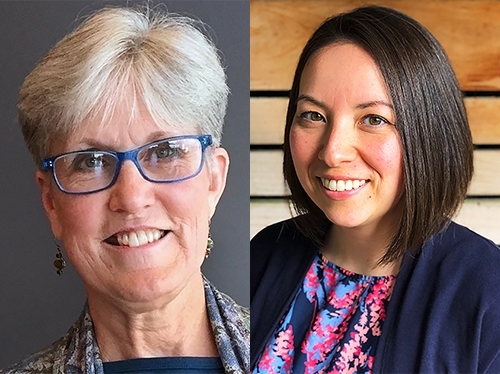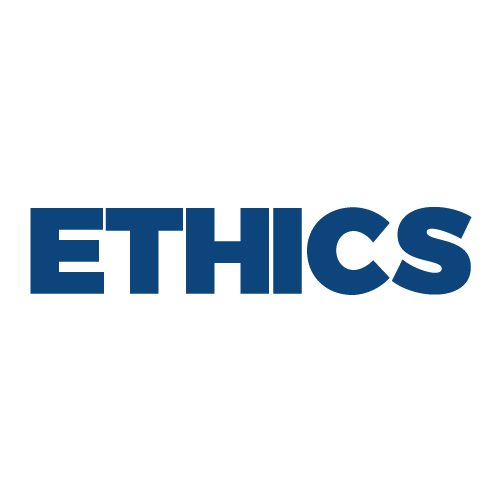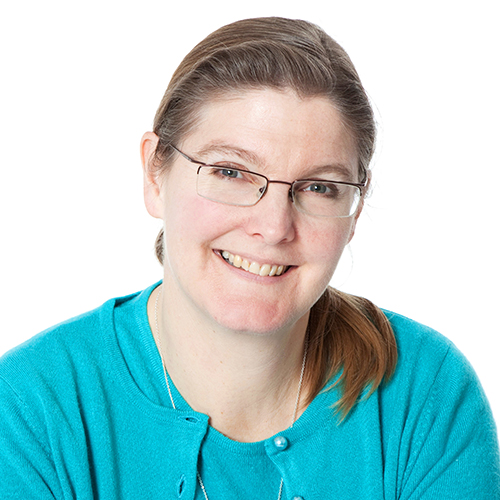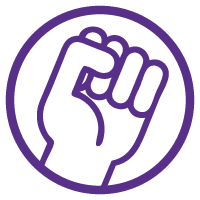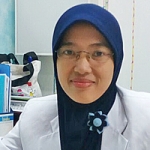 Lactation & Breastfeeding Online Course(s) & Continuing Education
Lactation & Breastfeeding Online Course(s) & Continuing Education
Access the latest clinical skills and research for Lactation & Breastfeeding for professional training. These Lactation & Breastfeeding online courses provide practice-changing skills and valuable perspectives from leading global experts. This Lactation & Breastfeeding education has been accredited for a variety of CEUs / CERPs and can be accessed on-demand, at your own pace.
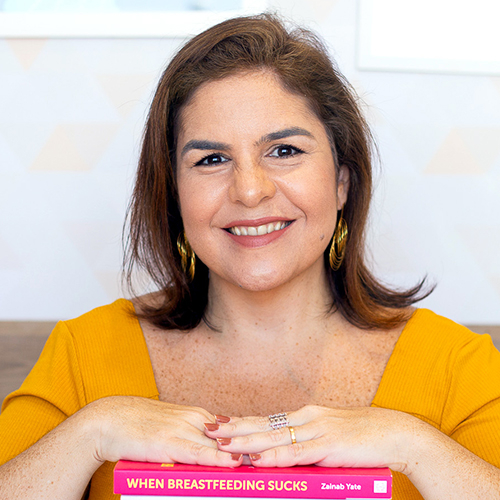
Lactation After Bariatric Surgery: Physiological, Hormonal and Psychological Implications

Bianca Balassiano has been working with families in private practice since 2008 as an IBCLC and perinatal psychologist/maternal-child health specialist. As a natural consequence of her professional background, has supported breastfeeding families into achieving individual goals while maintaining mental health and stimulating a holistic look towards the subject. Since 2014 is also working as an educator for healthcare professionals in one of the most recognized breastfeeding courses in Brazil, currently offering virtual classes and all over the country. Lives with husband and two children in Rio de Janeiro, Brazil. In 2020, she launched her first book aimed at families with the title "Gradual Weaning: How to Bring Your Breastfeeding Story to a Happy End".
Topic: Lactation After Bariatric Surgery: Physiological, Hormonal and Psychological Implications - [View Abstract]
With the increase in the prevalence of obesity internationally, the world is turning its attention to effective forms of treatment. As a result, surgical techniques are increasingly being used in an attempt to ensure weight loss, reduction of comorbidities and hormonal balance in young patients of childbearing age. However, as a restrictive and disabsortive surgery, its impacts on pregnancy, childbirth and postpartum outcomes have been increasingly studied closely. Scientific studies provide substantial data on lactation after bariatric surgery, with common outcomes such as greater use of supplementation, less exclusive breastfeeding, shorter duration of breastfeeding and a higher rate of nutritional and vitamin deficiencies. Less studied, however, are its emotional effects on the lactating person, as well as the impacts on body recognition and the difficulties in dealing with the new morphological breast/chest configuration. Therefore, it is essential that the health professional who is dedicated to working in support of breastfeeding is specially trained to support families for the proper management of breastfeeding in the presence of substantially increased risks, as demonstrated after bariatric surgery.
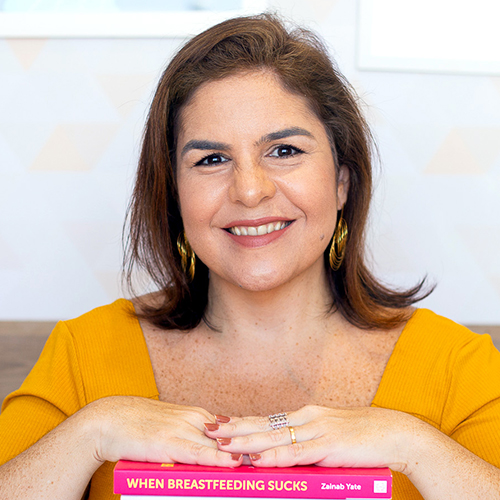
View Details / Enroll
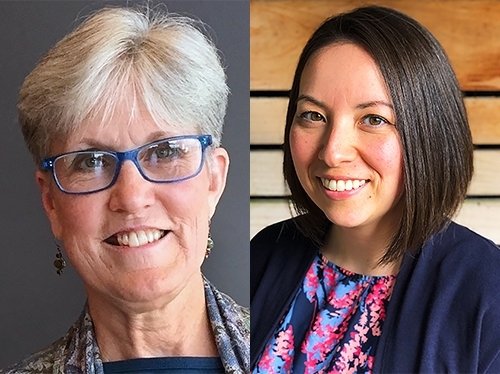

Dixie Whetsell, MS, IBCLC, has a Master’s Degree in Community Health Education from the University of Oregon. She began working with breastfeeding families in 1992 and became an IBCLC in 1998. She has worked as a lactation consultant in a variety of settings including private practice, county and state public health programs and high risk maternal and pediatric hospitals. She began teaching lactation training courses in 2003 and is currently an adjunct faculty member teaching in the Pathway 2 Lactation Training Program in the OHSU-PSU School of Public Health at Portland State University. She is a past presenter for the GOLD Perinatal Conference. She is an active member of the Oregon Washington Lactation Association, the US Lactation Consultant Association and the International Lactation Consultant Association. She was a founding Board Member for Northwest Mothers Milk Bank, a HMBANA non-profit donor milk bank.
Lisa Gonzales, BSN, RN, IBCLC earned her Bachelor of Science in Nursing from Linfield College. She started her nursing career as a Labor and Delivery nurse at a Level III OB hospital in 2006. After having her first baby, Lisa pursued lactation education and became an IBCLC in 2013. She made full career change in 2015 to become a lactation nurse in a high risk maternity and pediatric hospital, providing inpatient and outpatient consults to growing families. She is an active member of the Oregon Washington Lactation Association, the US Lactation Consultant Association and the International Lactation Consultant Association. Lisa currently helps families during in-home visits with her private practice.
This case describes a 32-year-old primiparous woman who experienced an anaphylactic reaction associated with breastfeeding and milk expression on postpartum day four. With each episode her symptoms worsened and she developed hives, edema and difficulty breathing and swallowing. She had to be treated for her anaphylactic reaction in a hospital ER and ICU and she was released on postpartum day five on antihistamines.
Lactation anaphylaxis is a very rare condition that was first reported in the scientific literature in 1991. Since then there have been 11 other reported cases. Lactation anaphylaxis can be life-threatening and symptoms can include a rash, hives, edema resulting in difficulty breathing or swallowing, a dangerous decrease in blood pressure and a loss of consciousness. We will review this case and do a brief review of the previous case reports. We will discuss the possible causes for lactation anaphylaxis, the related risk factors, common treatments and possible breastfeeding outcomes. In most cases with proper treatment and management breastfeeding and milk expression can continue. Enhanced awareness of and knowledge about this rare condition will allow lactation consultants and other members of the health care team to better support breastfeeding parents who experience lactation anaphylaxis.

View Details / Enroll


Brandi Gates-Burgess is a Lactation Consultant at Highland Hospital, Community Engagement specialist for the MILK Research Lab, serves on the Community Advisory Board of the UCSF Preterm Birth Initiative, and Co-chairs The Breastfeeding Cultural Outreach Taskforce (BCOT). Recently, Brandi transitioned from her 16-year career providing lactation support to families of the California WIC Program and decided to live her dream. She started her non-profit organization Breast Friends Lactation Support Services where she provides group lactation education and support to Black Families in the Bay Area. She is a mother to 4 breastfed children, wife and world traveler.
Topic: The Power of Mentorship - [View Abstract]
Most families plan to breastfeed during their pregnancy and are successful for the first month but fail to continue breastfeeding once they have returned to work. Although there is substantial evidence on factors that influence exclusive breastfeeding in the early postpartum period, there is a general lack of information to help mothers and lactating people continue to breastfeed after returning to work. When there is financial pressure combined with a lack of long-term, paid leave, many lactating parents must return to work shortly after the birth of their infant. When the workplace does not provide support, maternal employment becomes one of the major barriers to continued breastfeeding. There are many factors that play a role in the discontinuation of breastfeeding after returning to work, ranging from lack of support from the employer to the physical ability to express enough milk needed to satisfy baby. During this presentation we will address the lack of information and provide solutions to increase breastfeeding rates and duration after returning to work.
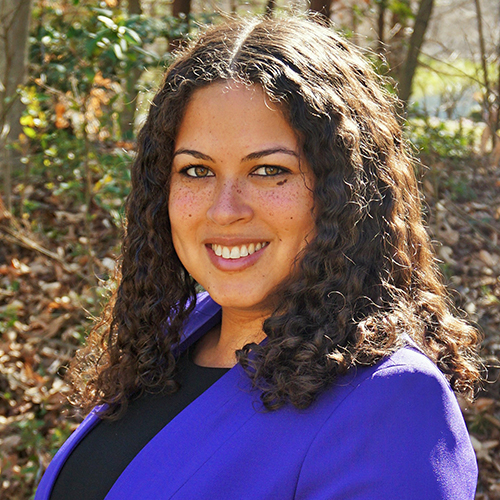

Jessica Lee is a Staff Attorney at the Center for WorkLife Law, and co-founder of the Center’s Nursing Mothers Law Project. She works to advance gender equality in the workplace and in education, and is a nationally recognized expert on discrimination related to pregnancy and breastfeeding. Lee has provided know-your-rights resources and training on workplace supports for breastfeeding to thousands of healthcare providers, public health practitioners, and employers. She also seeks to prevent discrimination by working with institutions to draft and implement family-responsive policies.
Lee’s writing has been featured in publications ranging from Harvard Business Review and The Chronicle of Higher Education to the journals Breastfeeding Medicine and Midwifery and Women’s Health. She is a co-author of the study, Exposed: Discrimination Against Breastfeeding Workers.
One of the most challenging experiences on a parent’s lactation journey is managing return to work. When lactating workers have access to both time and space for expressing breast milk, they are more likely to meet their breast/chestfeeding goals, yet many struggle to access these simple accommodations. Participants will gain an understanding of how workplace conditions influence lactation, become familiar with key legal principles protecting lactating parents in the workplace, and, learn strategies to ethically support their clients in reducing workplace barriers to continued lactation.
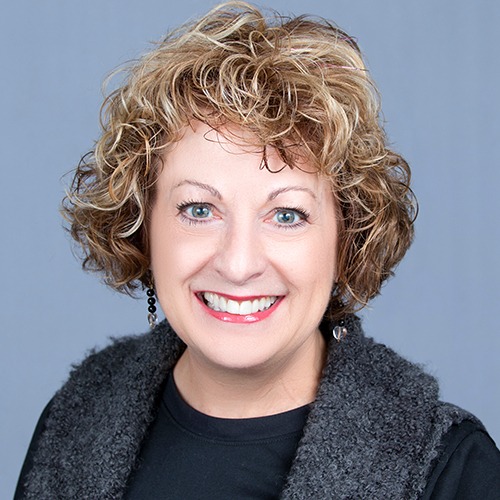
Lactation Choices Following Pre-and-perinatal Loss

Kathy Parkes is a sought-after speaker and webinar presenter as well as a published author. She has lived all over the world, settling in San Antonio, Texas after her Air Force husband retired. Kathy is a Registered Nurse with a Masters in Nursing Education and received her International Board Certified Lactation Consultant designation in 1992. Her private practice, Breastfeeding Perspectives, adds to her over 30 years of lactation experiences, which include WIC staff and clients, in-patient hospital work on L&D, postpartum, and NICU, taking a hospital to Baby-Friendly designation, setting up a lactation visitation program for both a home health agency and for the largest birth doula organization in San Antonio, and providing home and office lactation visits for private clients. She specializes in tethered oral tissues (tongue-and-lip ties), milk supply problems, multiples, and preterm/late preterm infants.
On the fun side, Kathy met her husband of 47 years as she was jumping out of the airplane he was flying. (You could say she fell for him!) She loves animals, traveling, and gardening. Most of all, she loves teaching others about breastfeeding.
Topic: How to Start a Private Lactation Practice - [View Abstract]
Topic: I QUIT!! Burnout, compassion fatigue, and self-care for the healthcare professional - [View Abstract]
Topic: Lactation Choices Following Pre-and-perinatal Loss - [View Abstract]
Topic: Powerful Relationships: How Babies (and Parents) Learn To Love - [View Abstract]
Professionals working with new mothers and infants are drawn to the field by compassion. However, when a loss occurs, whether prenatally or following birth, many of us are unprepared to deal with the loss ourselves, or in assisting the family. One of the many decisions that needs to be made in this time of grief is how the mother will deal with lactogenesis II, the surge of breast milk at two to four days. This session will provide an overview of anatomy and physiology of milk production, and discuss various choices the mother can make regarding how she will deal with the milk supply that occurs. To close the session, the speaker will briefly discuss self-care for professionals to aid recovery from such a loss.
View Details / Enroll
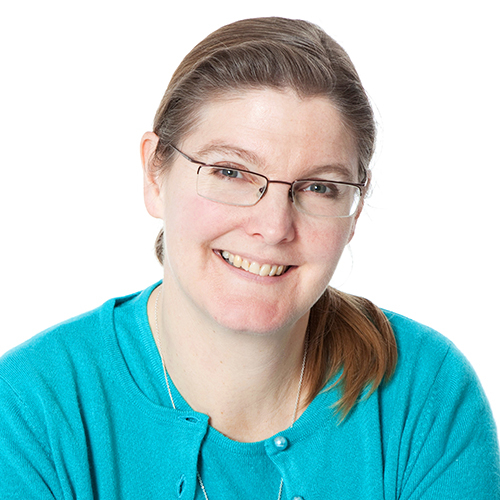

Helen Gray MPhil IBCLC is Joint Coordinator of the UK Steering Group of the World Breastfeeding Trends Initiative (WBTi). In 2017 she and Clare Meynell IBCLC jointly received the Award for Outstanding Contribution to Breastfeeding from the Lactation Consultants of Great Britain (LCGB), for leading the UK’s first WBTi assessment of infant feeding policies and programmes.
Helen is an international speaker on ethics and conflicts of interest. She represents La Leche League of Great Britain on the UK Baby Feeding Law Group, which works to bring the International Code of Marketing of Breastmilk Substitutes into UK law. She is also Policy and Advocacy Lead for Lactation Consultants of Great Britain, and previously co-chaired LCGB’s Communications Team.
Helen’s background in anthropology and human evolution has influenced her interest in how breastfeeding, and the way we nurture our babies, are influenced by both human biology and culture.
Her current advocacy focus is the need for strong policies to protect infant feeding in emergencies. She currently serves on the Advisory Panel for a London Food Resilience research project with Oxford University.
In her spare time, she can be found sculling on the River Thames.
The profession of lactation consultant has grown around the world and has evolved enormously since its inception in 1985. At first, the development of the profession provided skilled breastfeeding counsellors with a role that aligned with the medical model, provided a career pathway, and provided evidence of lactation skills and experience.
Over the years, the certification has grown and now there are over 33,000 International Board Certified Lactation Consultants© (IBCLC©) in 125 countries with the exam now offered in 17 languages. Lactation consultants are now recognised at national and global levels as providers of expert lactation care, and they work within a “landscape” of varied roles and qualifications, each of which brings their own important skill set. IBCLCs play many roles, ranging from advocate to clinical expert, from policy consultant to researcher. The profession has evolved in response to sociocultural change and global issues. One major change has been the increasing importance of technology and the internet, driven partly by the fact that the consumers of breastfeeding care are the most internet involved generation in history, with a particularly rapid transition in response to the COVID-19 pandemic. Major shifts have included the recognition of structural racism, health disparities, inequities in health care and in breastfeeding support, the importance of building a more diverse workforce, recognition of the gendered nature of lactation care and the need for inclusion for people of all genders, breastfeeding as a reproductive right and as a human right of the breastfeeding dyad, and the impact of how babies are fed on many other spheres, including climate change and public health.
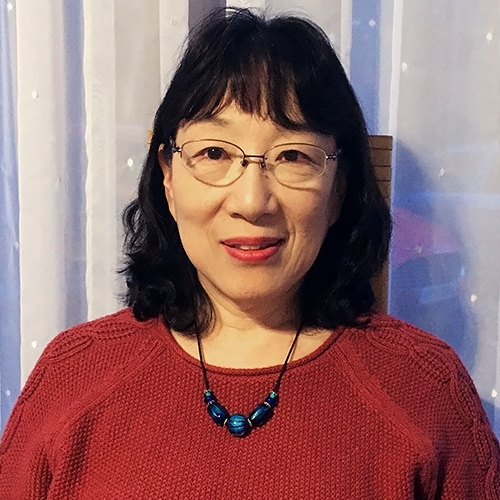
Lactation Education as Advocacy: Increasing Knowledge Among Physicians

Tomoko Seo is a pediatrician and IBCLC in Japan, working in a private clinic with colleagues including IBCLCs who practice's general pediatrics and breastfeeding medicine. She became certified as an IBCLC in 1999 and recertified in 2004, 2009, 2014 and 2019. She is a member of the Japanese Association of Lactation Consultants (JALC) since 1999, when it was founded. JALC has been holding conferences several times a year, including the “Annual Breastfeeding Seminar for Physicians” since 2005 to provide breastfeeding education to physicians and improve breastfeeding support among physicians. Tomko has been a member of the Academy of Breastfeeding Medicine (ABM) since 1999. She is also an active member of the International, Protocol, Education, Conference, Membership Committees of ABM.
Breastfeeding facilitates good health in infants and mothers, and for all humans throughout life. Medical professionals should be advocates for breastfeeding, and physicians could be one of the most influential advocates. However, many medical students, residents and physicians have very limited opportunities to learn about breastfeeding and human lactation during their medical education.
From another point of view, breastfeeding is a private experience as well as a scientific matter. If a physician or a partner successfully breastfeeds, she/he may become a more effective advocate for breastfeeding. So, it is imperative to provide medical students, residents, and young physicians with education about breastfeeding and to enable them to experience successful breastfeeding personally, in order for them to promote and support breastfeeding among their patients.
The Academy of Breastfeeding Medicine is an international organization of physicians who protect, promote, and support breastfeeding, and one of its goals is to develop and disseminate the standard for physician education around breastfeeding and human lactation. ABM has developed protocols and statements for health care providers to utilize for breastfeeding management.
The WHO/UNICEF revised Ten Steps to Successful Breastfeeding in 2018, includes in Step2 “Ensure that staff have sufficient knowledge, competence and skills to support breastfeeding”. This included physician education. There are many ways to educate physicians, and ABM materials could be one option.

View Details / Enroll
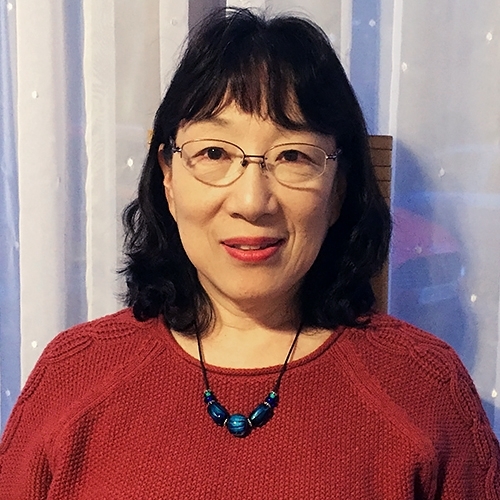
View Details / Enroll
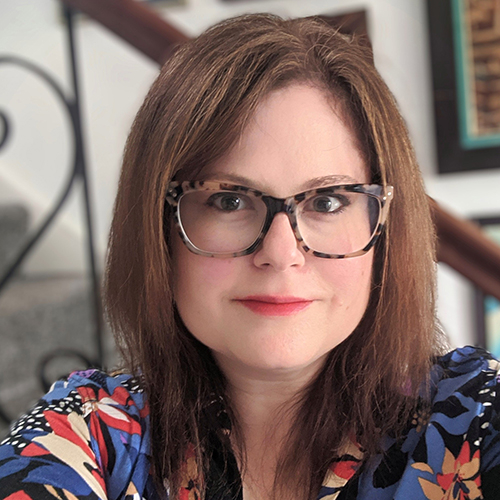
Lactation Education Outside the Box: Innovative Teaching Strategies to Engage Your Audience

Tamara Drenttel Brand holds an MA in Near Eastern Studies from the University of Arizona and a Master’s in Public Health (MPH) from the American University of Beirut. She spent 10 years in the Middle East, where she worked as a public health practitioner, infant and maternal health consultant and an IBCLC. She has supported breastfeeding dyads from all over the world both in private practice and as a volunteer. In 2011, she founded and still actively facilitates “Mama 2 Mama Beirut Breastfeeding Support,” the largest breastfeeding peer support network in the Middle East (currently at 25k+ members). Additionally, she founded Galactablog, a professional group for lactation specialists and those aspiring-to-be (currently at 4.7k+ members) and has authored several articles for La Leche League’s monthly leader publications in both the Middle East and Ireland.
She is currently an international speaker on the topics dealing with breastfeeding in the Middle East, innovative lactation teaching strategies, working in resource-scarce settings, providing culturally sensitive lactation support, developing and implementing peer counselor training programs, mast cell disease and other related topics. Due to her own chronic health conditions, she has a special interest in educating others about mast cell disease and supporting those with chronic illnesses. She currently resides in a seaside village in Ireland with her family.
Topic: Contextualizing Breastfeeding in Lebanon - [View Abstract]
Topic: Lactation Education Outside the Box: Innovative Teaching Strategies to Engage Your Audience - [View Abstract]
Topic: Mast Cell Diseases and Lactation Care in the Post-Covid Era - [View Abstract]
Topic: Providing Culturally Sensitive Support for Breastfeeding Muslim Families - [View Abstract]
Topic: Reflections on a Breastfeeding Peer Counselor Program in Lebanon: Lessons Learned and Looking Forward - [View Abstract]
Are you a lactation professional or health care provider looking for ways to engage your audience? Whether your audience is breastfeeding families, parents-to-be, peer counselors, volunteers, health care professionals or lactation specialists, then this presentation is for you! In it, I will show how creative solutions can overcome a lack of resources or technology to provide mothers and families with engaging and effective breastfeeding support. This session will cover innovative and interactive educational strategies and activities that can be used to capture your audience’s attention and to encourage them to retain vital information and strategies to help them breastfeed.
These concepts are practical and applicable to all types of settings, including but not limited to: breastfeeding support groups, lectures and presentations, training sessions, webinars, seminars and one-on-one lactation consultations. Moreover, they are easily modifiable to fit the needs of different populations and cultures. As many lactation professionals work in low-income communities or resource-poor settings that frequently lack many of the latest gadgets and expensive lactation aids, this presentation will offer demonstrations and tutorials of Do-It-Yourself (DIY) options that can ensure that breastfeeding mothers and families get the best support possible, even when resources are scarce.
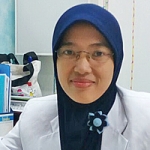

I am a wife and mother of two breastfed children. I was a general practitioner and am currently more focused on helping mothers to breastfeed. I work at Puri Cinere Hospital and Kemang Medical Care Women and Children as a lactation counselor. I currently on leave due to accompany my husband school in United State for his PhD programs. Since 2009, I've been helping mothers who have difficulties breastfeeding. It is a delight when we meet during tough times, then met again once their breastfed child are big and smart, and most importantly successfully breastfed. My desire is to help mothers to breastfed wherever I live in this world.
Good doctor–patient communication is essential for positive health care outcomes. Ideal doctor–patient communication generally is reflected in a partnership communication style. However, in Southeast Asian settings, we often see a more one-way style with little input from the patient.
Helpline services is breaking the ice, and is considered a new option modality for patients in Indonesia. The ease in contacting medical professionals through phone and text messages seems more comfortable, personal and inexpensive.
Breastfeeding support via a helpline helps mother to feel reassured, confident and more determined to continue breastfeeding, and in majority of occasions resolves their particular concerns.
Lactation Clinic in Puri Cinere Hospital, Depok, West Java, Indonesia was established in August 2011 and operated a helpline since the beginning of its establishment. Helpline service is open 24 hours daily, through phone, text messages, whatsapp, or blackberry messenger directly to doctors who are also breastfeeding counselors. There are six doctors who take turns every month to receive calls and reply to messages. Helpline numbers are distributed to patients during post natal rounds or at patients doctors appointments in lactation clinic.
A longitudinal study conducted in March to December 2014 shows 202 helpline cases in 9 months. There were 29 cases (14%) questioning EBM handling, 24 cases (12%) asking about complementary feeding, 19 cases (9%) of infant stool, 19 cases (9%) medication and mother's milk, 15 cases (7%) frenotomy after care and other various problems. 63% cases were successful managed via helpline, and 37% cases were referred to the Lactation Clinic to get further help.
There were many cases resolved through helpline calls and messages. High success rate of helpline management shows that helpline program is effective to help mothers and resolved their particular concerns; especially in Indonesia.

View Details / Enroll


Catherine Watson Genna BS, IBCLC is an International Board Certified Lactation Consultant in private practice in New York City. Certified in 1992, Catherine is particularly interested in helping moms and babies breastfeed when they have medical challenges and is an active clinical mentor. She speaks to healthcare professionals around the world on assisting breastfeeding babies with anatomical, genetic or neurological problems. Her presentations and her writing are enriched by her clinical photographs and videos. Catherine collaborates with Columbia University and Tel Aviv University Departments of Biomedical Engineering on research projects investigating the biomechanics of the lactating nipple and various aspects of sucking and swallowing in breastfeeding infants. She is the author of Selecting and Using Breastfeeding Tools: Improving Care and Outcomes (Praeclarus Press 2009) and Supporting Sucking Skills in Breastfeeding Infants (Jones and Bartlett Learning 2008, 2013, 2017) as well as professional journal articles and chapters in the Core Curriculum for Lactation Consultant Practice and Breastfeeding and Human Lactation. Catherine served as Associate Editor of the United States Lactation Consultant Association’s official journal Clinical Lactation for its first seven years.
Topic: Breastfeeding Strategies for Tongue-tied Infants - [View Abstract]
Topic: Critical Assessment of Apparent Tongue-Tie - [View Abstract]
Topic: Introduction to Cervical Auscultation - [View Abstract]
Topic: Lactation Support for Infant Biomedical Challenges - [View Abstract]
Topic: Organization of tongue movements before and after frenotomy for posterior tongue-tie: an Ultrasound analysis - [View Abstract]
Topic: Positioning and Latch for Breastfeeding - [View Abstract]
Topic: Ultrasound Analysis of Sucking: Tongue-Tie and Confounders - [View Abstract]
Topic: Using Breastfeeding Supplementers - [View Abstract]
Infants with biologically based sucking problems can often breastfeed with specific lactation management and supportive techniques. This presentation provides an overview of some common medical problems that cause feeding difficulty and strategies that can help an infant with suboptimal sucking skills to feed more normally.





